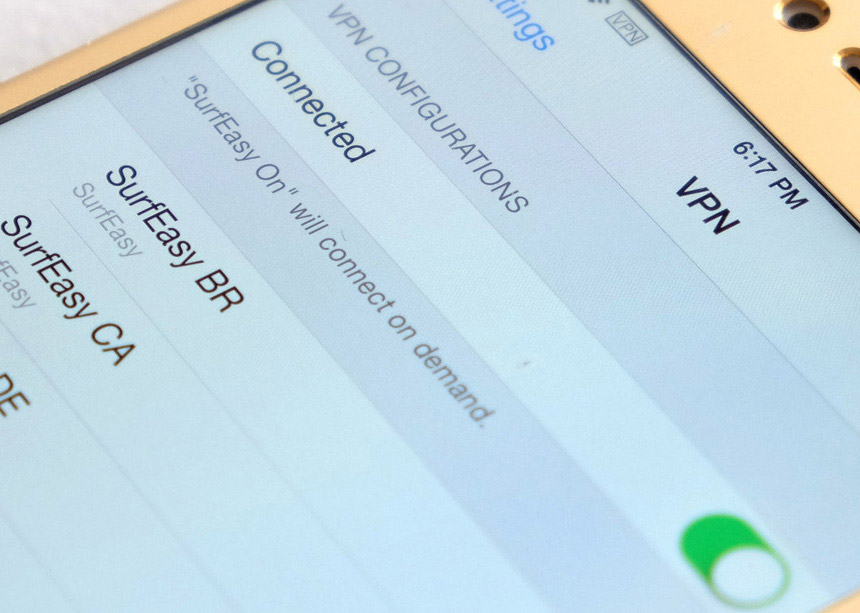
Whether you realize it or not, your smartphone keeps tabs on your location almost all the time. That may not be an issue for you under most cases, but if you’re connected to an unfamiliar Wi-Fi network, or you just like flying under the radar, using a VPN (virtual private network) is one way to make that happen.
Using a VPN hasn’t truly gone mainstream yet, given that the acronym itself still confuses the average user not in the know. It basically gives your phone a different IP address to mask its location, making it seem like it’s in a different city or country. The benefit of this is designed to be two-fold: limiting data and location tracking while doing anything online and accessing geo-restricted content.
The first part of that equation is naturally targeted at being secure, making it harder for any app to track your location at all times. By default, a number of apps already do this when you have tracking turned on, and you sometimes have to in order to use the app’s features. Maps, dating and streaming apps are a few that come to mind, but it can apply to a fairly wide subset of apps.
Public Wi-Fi hotspots
It’s easy to appreciate having Wi-Fi access, no matter where you might be, except public networks aren’t entirely secure. Whether you’re travelling, hanging out at a local café or logging in anywhere that is open to all users, staying anonymous can add some peace of mind when using certain apps. For example, if I have any banking to do while I’m on Wi-Fi on a public network, I always enable my VPN first. Same with buying or downloading a song or app. Anything that even remotely has to do with money or my personal information is something I would only touch with a VPN turned on.
Mobile malware hasn’t become as pervasive as it has on computers, but that doesn’t mean your phone isn’t vulnerable. Being connected to your carrier’s LTE/3G network isn’t the same as public Wi-Fi, so you have less to worry about if you’re using your data connection, and a VPN will work regardless of the type of Internet connection your phone has.
Sending and receiving
Considering all the messages, photos and video that you might send and receive between friends and family, keeping that content away from prying eyes is another reason to use a VPN. Again, this is more something you should bear in mind for unencrypted Wi-Fi networks, or those that have encryption but are still open to everyone (think a hotel or coffee house). You may not have a cyberattacker in your midst trying to grab your information, but even so, you should exercise some caution when sharing anything that is personal and private.
A VPN anonymizes it all. Consider that if you’re in a hotel or hostel and want to Skype, FaceTime or Viber with someone, you would probably have the expectation that the video chat is private. It may be, but it just as easily could not be. A VPN adds a failsafe to make sure no one is prying through cyberspace.
Bearing in mind that if your phone is already infected with malware that’s already snooping through your stuff, a VPN isn’t going to be enough, so if you suspect that your phone might be infected (especially Android users), use an antivirus app to scan for something that shouldn’t be there.
Accessing other content
One of the tangible benefits of a VPN is that rerouting your IP through a server in a different country gives the impression that you are in that country. It’s a kick to be planted in Canada, yet seem like you’re in the middle of the U.S. or Germany, for example.
What this can do is open up access to geo-restricted content, like American Netflix (though there are reports now that Netflix is starting to clamp down on this) or other video and music apps that are specific to a certain country. Another example is accessing the British version of BBC iPlayer, which has more than the one currently available in Canada. Almost every video streaming service offers differences between various countries, so being able to access them can enhance a subscription in a big way.
Music is less prominent here because almost all streaming services are already available here. The only one major omission is Pandora, which does offer a free tier to stream music with ads thrown in. Music rights don’t change as much from country to country, so logging into the American version of Spotify or Rdio, for example, likely won’t yield any significant differences.
With AirPlay, you can push the video or audio to a compatible device, like a TV or speaker. Ditto with Android on DLNA or a Chromecast.
VPN services
In almost every case, a VPN provider will offer a free tier of usage, usually 500MB per month. This means you can use the VPN for up to 500MB of data per month, though note that it doesn’t matter if it’s LTE/3G or Wi-Fi—so long as it’s active, it treats all incoming and outgoing data the same way.
SurfEasy and Wajam VPN are two Canadian services. SurfEasy was recently acquired by Opera, the company known for its indie web browser, though its service hasn’t really changed despite that. It works with both iOS and Android, with 500MB free for up to five devices. A subscription offers unlimited VPN data, so you can use it with smartphones, tablets and computers.
Wajam VPN is another one with a free version that limits you to 500MB of bandwidth, while a Premium subscription can lift all caps and increase the speed of the service.
There are several VPN options for mobile devices now, almost all of which offer a free trial to test out. For the peace of mind and content access one can provide, it’s worth adopting one for your mobile security.



Love SurfEasy… note, they also offer a 5 device package…
http://www.bestbuy.ca/en-CA/product/surfeasy-total-vpn/10254753.aspx
Comments are closed.